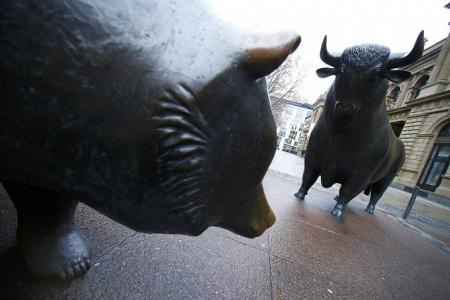Why the Fed hike should interest you
Want to make your money grow but don't know how? CHAI HUNG YIN (chaihyn@sph.com.sg) speaks to experts
Over the last few months, this column has examined the merits of investing to boost savings, and explored the different options available.
We also introduced amateur investors who spoke of the mistakes they had made and the lessons learnt.
This was an effort to highlight the role investing can play in helping to enhance your savings at a time of low payouts on your bank savings account.
Moving on to the new year, investors should be aware of external events and the impact they could have on the markets.
On Dec 16, the US Federal Reserve (often referred to as the Fed) raised the benchmark interest rate by 0.25 percentage points - the first increase since 2006.
It is not a one-off exercise and most experts believe the Fed will continue to gradually raise interest rates this year and beyond.
Experts say interest rates here will also rise as they are generally positively correlated to US interest rates.
As Singapore is a small and open economy and the US is a major trading partner, US interest rates have a significant influence on our economy and the interest rate outlook here, says Mr Vasu Menon, OCBC Bank's vice-president and senior investment strategist of Wealth Management Singapore.
"If the Fed's rate hikes lead to a stronger US dollar vis-a-vis the Singapore dollar, this could cause rates here to rise," he says.
"This is the result of the weaker Singapore dollar causing some outflow of funds, and possibly reducing the supply of Singapore dollars in the local money market. This will cause interest rates here to rise.
"Also, a weaker Singapore dollar means that investors may seek higher yields as compensation for holding the weaker currency."
The effect of capital outflows from neighbouring emerging markets has generated a broad effect on the stock market here, says SGX market strategist Geoff Howie.
He says: "Together, the STI (Straits Times Index), KLCI (Kuala Lumpur Composite Index), SET Index (Stock Exchange of Thailand) and Jakarta Composite Index faced similar declines in the year (2015)."
WEAKEN
Another effect is that bond prices could weaken if interest rates rise more sharply than expected, given their inverse relationship with interest rates, says Mr Menon.
He says: "Bonds with a longer tenor tend to be more vulnerable to rising interest rates, which is why investors looking to buy bonds can reduce downside risk by buying bonds with a shorter tenor of four to five years."
Investors too, need to bear in mind liquidity risk, as a seller may not be able to sell his bonds if there are no buyers when he is ready to sell, Mr Menon notes.
"In addition, there may be a big gap between the seller's asking price and the buyer's bid price if the buyer is concerned about rising interest rates."
He adds that rising rates may take some shine off real estate investment trusts and dividend-yielding stocks, and weigh on their share prices.
"However, as interest rates here are likely to remain low by historical standards, the search for yield should continue and thus provide downside support for these groups of stocks," he says.
"Bonds with a longer tenor tend to be more vulnerable to rising interest rates, which is why investors looking to buy bonds can reduce downside risk by buying bonds with a shorter tenor of four to five years."
- Mr Vasu Menon, OCBC's vice-president and senior investment strategist of Wealth Management Singapore.
Impact on housing, cost of living here
HOUSING
Assuming the Singapore Interbank Offered Rate (Sibor) has a one-to-one correlation with the Fed fund rates, a hike of 25 basis points will have a monthly effect of about $200 in extra payments for a $1 million loan, notes CIMB Securities (Singapore)'s research team.
Its spokesman says: "In actual correlation, the Sibor has only a 50 per cent sensitivity to Fed rates but it is driven by other factors such as currency. In the past year, the Sibor has already moved much without the Fed fund rates moving and that is already reflected in everyone's mortgage rates over 2015.
"You can see the quantum is not big, especially as most people who live in HDB flats don't have a $1 million mortgage. It does affect speculators with multiple properties, as reflected already in rising mortgagee sales."
An increase in interest rates will weigh further on property prices here and reduce the appeal of investment properties, especially given the current weak rental market, says OCBC's Mr Vasu Menon.
"The man on the street may then face the burden of rising mortgage rates... Unless a property owner can rent out his property easily, he may end up owning a property that is vacant for long periods, or he may have to slash rentals."
COST OF LIVING
Rising interest rates will make setting aside cash in a savings account more appealing.
Says Mr Menon: "However, keeping funds idle comes with risk as well, because if the interest rate on idle deposits does not beat inflation, this effectively means that the purchasing power of the savings will depreciate over time, and consumers may not be able to meet their goals like buying a home and paying for their children's education."
Get The New Paper on your phone with the free TNP app. Download from the Apple App Store or Google Play Store now

